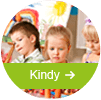Cleaning Baby Eyes, Nose and Ears
Your baby will, at times, need to have their facial areas ‘cleaned up’ a little!
That’s most likely to be noticeable after feeding or when they’ve made a mess of themselves. However, it’s also a good idea at the time you’re putting them down for the night and when they first get up.
Here are a few tips relating to cleaning those baby eyes, nose and ears.
What not to do
Babies have fragile skin and cavity linings. At all times you’ll need to think carefully about being gentle and using appropriate materials. Therefore, do not:
- use adult soaps and cleansers around their eyes, nose and ears;
- buy very expensive specialised baby products, including homoeopathic or ‘green’ ones, for use in those same areas. They’re typically unnecessary (unless recommended by a doctor or health care specialist);
- apply lots of rubbing force to ‘get them clean’. It could be potentially damaging to those sensitive areas;
- insert foreign objects (e.g., cotton wool buds, pads or your fingers) into their ears or noses;
- pour liquids into them. Some ‘old wives’ tales’ advocate this approach to ears but it is potentially highly dangerous for the baby;
- squeeze noses when you’re trying to clean them.
What should be done
In most cases, a minimalist approach is advised by most baby care specialists:
- use cotton wool pads certified as baby-safe;
- simply use plain and very gently warm (never hot) water;
- being very gentle, wipe the moist pad across the areas you’re trying to clean;
- in the case of eyelids, use exceptionally gentle strokes going from the inner to the outer eye direction;
- wash only the outer areas of the ear;
- pat gently dry with a soft towel.
Special cases
There may be times, such as if your baby has a case of ‘the sniffles’, that their noses can be a little messier than usual and therefore require more regular cleaning. The risk though is that the constant wiping and washing may make those same delicate noses a little sore.
This is perfectly normal.
If it happens, there are special moisturising products to help. Again, try not to simply reach for the adult version but instead ask your doctor or pharmacist for advice on what they recommend by way of product and how to use it.
While a little discharge from the nose is perfectly normal, it would be sensible to consult a doctor if the mucus contains evidence of blood or if it seems to be continuing for an extended period. Similarly, slight discharges from the ears are far from rare but if they continue it might suggest your baby has an infection and again, a doctor should be consulted.
Finally, babies’ eyes can ‘weep’ a little at times but this should not be coloured or sticky, making it difficult for them to open their eyelids. If your baby is demonstrating such symptoms, ask a doctor for a check-up and advice.













